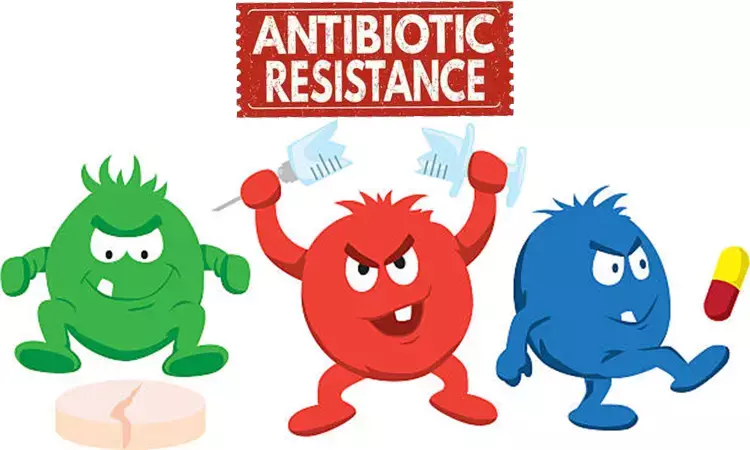- Home
- Medical news & Guidelines
- Anesthesiology
- Cardiology and CTVS
- Critical Care
- Dentistry
- Dermatology
- Diabetes and Endocrinology
- ENT
- Gastroenterology
- Medicine
- Nephrology
- Neurology
- Obstretics-Gynaecology
- Oncology
- Ophthalmology
- Orthopaedics
- Pediatrics-Neonatology
- Psychiatry
- Pulmonology
- Radiology
- Surgery
- Urology
- Laboratory Medicine
- Diet
- Nursing
- Paramedical
- Physiotherapy
- Health news
- Fact Check
- Bone Health Fact Check
- Brain Health Fact Check
- Cancer Related Fact Check
- Child Care Fact Check
- Dental and oral health fact check
- Diabetes and metabolic health fact check
- Diet and Nutrition Fact Check
- Eye and ENT Care Fact Check
- Fitness fact check
- Gut health fact check
- Heart health fact check
- Kidney health fact check
- Medical education fact check
- Men's health fact check
- Respiratory fact check
- Skin and hair care fact check
- Vaccine and Immunization fact check
- Women's health fact check
- AYUSH
- State News
- Andaman and Nicobar Islands
- Andhra Pradesh
- Arunachal Pradesh
- Assam
- Bihar
- Chandigarh
- Chattisgarh
- Dadra and Nagar Haveli
- Daman and Diu
- Delhi
- Goa
- Gujarat
- Haryana
- Himachal Pradesh
- Jammu & Kashmir
- Jharkhand
- Karnataka
- Kerala
- Ladakh
- Lakshadweep
- Madhya Pradesh
- Maharashtra
- Manipur
- Meghalaya
- Mizoram
- Nagaland
- Odisha
- Puducherry
- Punjab
- Rajasthan
- Sikkim
- Tamil Nadu
- Telangana
- Tripura
- Uttar Pradesh
- Uttrakhand
- West Bengal
- Medical Education
- Industry
Aminoglycoside or Polymyxin Monotherapy effective in treatment of complicated UTI

The spread of multidrug-resistant gram-negative bacteria (GNB) is a global issue. Pseudomonas aeruginosa is especially concerning because of its amazing ability to build resistance. Pseudomonas aeruginosa (PA) infections that are XDR are difficult to treat.
According to a new trial, aminoglycosides or polymyxin monotherapy demonstrated high effectiveness and safety in treating cUTI caused by XDR-PA.
This study was conducted by Inmaculada López Montesinos and team with the objective to assess the efficacy of aminoglycosides or polymyxin monotherapy vs other antibiotic regimens (aztreonam, ceftolozane-tazobactam, ceftazidime-avibactam carbapenems, or ceftazidime, cefepime) in complex urinary tract infections (cUTI) caused by XDR-PA. The findings of this study were published in Infectious Disease and Therapy on 3rd December, 2021.
From 2010 through 2019, a study was conducted in a tertiary care hospital. All consecutive adult patients with XDR-PA urine cultures and cUTI were evaluated retrospectively. According to Magiorakos et al., the XDR phenotype was defined. In multivariate studies and for matching, a propensity score was utilized as a covariate. The primary outcome was early clinical failure and therapy discontinuation (EOT). The primary secondary outcomes were death at 30 and 90 days, microbiological clearance, and antibiotic-related adverse effects.
The results stated as follow:
1. 101 of the 465 episodes screened were included in the study, and 48% were treated with aminoglycoside or colistin monotherapy.
2. The majority of XDR-PA were completely susceptible to colistin and amikacin (43%).
3. Patients who received antibiotics other than aminoglycosides or polymyxin monotherapy were more likely to develop hematologic malignancy, a higher SOFA score, and bacteremia.
4. Monotherapy with aminoglycosides or colistin was not linked with poorer results in multivariate models adjusted by propensity score.
5. After propensity score matching, 28 episodes were matched in each treatment group. With aminoglycosides or polymyxin monotherapy, the adjusted odds ratios for early clinical failure and at EOT were 0.53 and 1.29, respectively.
6. Aminoglycoside or colistin monotherapy was not related with increased 30-day or 90-day mortality, nor was it connected with a lack of microbiological clearance.
7. In terms of nephrotoxicity, no statistically significant changes were discovered.
8. Only in the "other antibiotic regimens" group (n = 6, 11.3 percent) was Clostridioides difficile infection found.
In conclusion, When compared to combination or other antibiotic regimens, the findings of this study almost confirmed that amikacin or CMS monotherapy has no negative influence on the outcomes of complex UTIs caused by XDR PA. Given their clinical and environmental implications, these findings may be valuable for antibiotic stewardship programs. However, further research is needed to validate these findings, particularly in more seriously sick individuals.
Reference:
López Montesinos I, Gómez-Zorrilla S, Palacios-Baena ZR, Prim N, Echeverria-Esnal D, Gracia MP, Montero MM, Durán-Jordà X, Sendra E, Sorli L, Guerri-Fernandez R, Padilla E, Grau S, Horcajada JP; PROA PSMAR group. Aminoglycoside or Polymyxin Monotherapy for Treating Complicated Urinary Tract Infections Caused by Extensively Drug-Resistant Pseudomonas aeruginosa: A Propensity Score-Adjusted and Matched Cohort Study. Infect Dis Ther. 2021 Dec 3. doi: 10.1007/s40121-021-00570-z. Epub ahead of print. PMID: 34860333.
Medical Dialogues consists of a team of passionate medical/scientific writers, led by doctors and healthcare researchers. Our team efforts to bring you updated and timely news about the important happenings of the medical and healthcare sector. Our editorial team can be reached at editorial@medicaldialogues.in.
Dr Kamal Kant Kohli-MBBS, DTCD- a chest specialist with more than 30 years of practice and a flair for writing clinical articles, Dr Kamal Kant Kohli joined Medical Dialogues as a Chief Editor of Medical News. Besides writing articles, as an editor, he proofreads and verifies all the medical content published on Medical Dialogues including those coming from journals, studies,medical conferences,guidelines etc. Email: drkohli@medicaldialogues.in. Contact no. 011-43720751


